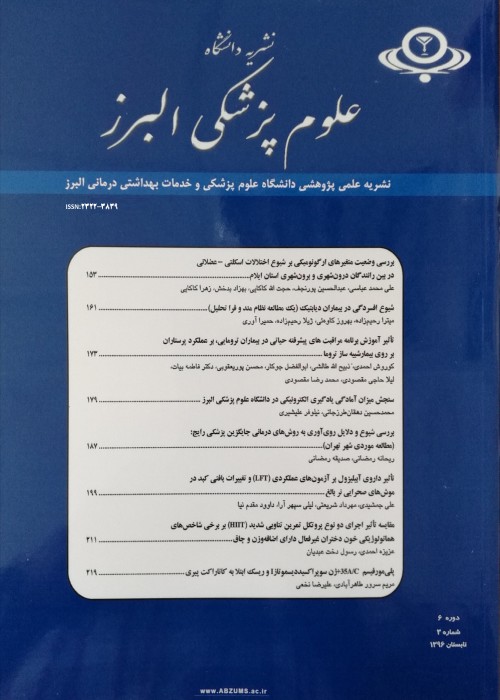Evaluation of Carbapenemase and Integron Resistance Genes in Pseudomonas Aeruginosa Isolated from Clinical Samples and Determination of Antibiotic Resistance Pattern by Laboratory Method
Pseudomonas aeruginosa is one of the most important bacteria causing nosocomial infections, especially in immunocompromised patients. Many antibiotics such as aminoglycosides, quinolones, and beta-lactams are used to treat infections caused by this bacterium. But the emergence of hospital resistance and outbreaks of resistance strains have been widely reported. The aim of this study was to evaluate the frequency of class I, II and III integrons and carbapenemase genes in clinical isolates of Pseudomonas aeruginosa.
In this descriptive cross-sectional study, 100 clinical isolates of Pseudomonas aeruginosa were collected from Tehran health centers. All isolates were confirmed by phenotypic and biochemical tests. Antibiotic susceptibility testing was performed by gel diffusion method, based on CLSI procedure, and on commercial Müller Hinton agar medium with commercial antibiotics.
The results of antibiotic susceptibility test showed that the highest antibiotic resistance was obtained against amikacin (100%) and imipenem (85%) and the least antibiotic resistance to gentamycin (66%). The highest frequency distribution was related to intI gene with 92% and the lowest frequency of intII gene with 5%. KPC gene was detected in 87% and IMP gene in 51% of samples.
Due to the high prevalence of integron in Pseudomonas aeruginosa resistant isolates and its association with different patterns of drug resistance, appropriate strategies for infection control and treatment in the studied hospitals are necessary to prevent further spread of these isolates. The PCR method in this study, with the results of other researchers in different parts of the world, may be due to the source of the sample. Rapid detection of Pseudomonas aeruginosa in clinical specimens is important for initiating treatment. The use of molecular methods to detect antibiotic resistance of Pseudomonas aeruginosa in clinical samples of patients is very important.
- حق عضویت دریافتی صرف حمایت از نشریات عضو و نگهداری، تکمیل و توسعه مگیران میشود.
- پرداخت حق اشتراک و دانلود مقالات اجازه بازنشر آن در سایر رسانههای چاپی و دیجیتال را به کاربر نمیدهد.


